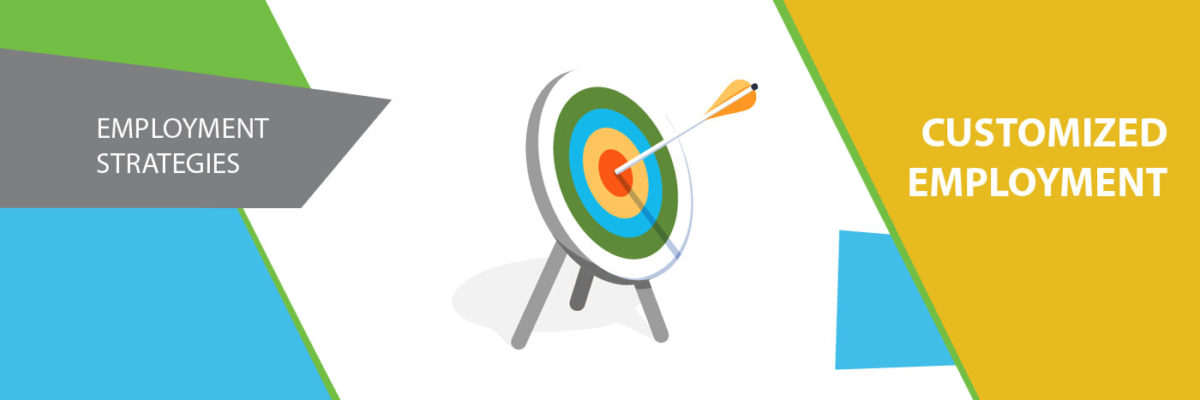Customized employment connects a job seeker who has unique interests and abilities to an employer who has an unmet business need. A job is customized to fit the needs of both the employer and the job seeker.
Why is it Needed?
A traditional job seeking approach often doesn’t work for a person with significant challenges. The customized approach defines job tasks around the needs of the employer and what the job seeker is capable of and interested in. It individualizes the relationship between a job seeker and an employer.
How does it Work?
Customized employment involves several steps.
Discovery Process
A job developer uses an in-depth, qualitative discovery process to gather information about the job seeker's skills, interests, and conditions for successful employment.
Job Search Plan
The job seeker, job developer, and any relevant family members or service professionals develop a job search plan. They also develop a visual resume to introduce the job seeker to employers.
Job Development
A job developer presents the benefits of customized employment and specific contributions of the job seeker to an employer. They identify unmet work needs that match the job seeker’s skills and discuss how to customize a position, including needed supports for the job seeker.
Follow-Up
The job developer provides follow-up services to ensure the customized employment relationship is working for both the employee and the employer.
Customized employment services are provided by supported employment agencies, community rehabilitation programs, or independent employment specialists.
Tips for Success
After the job-seeker starts working, follow up is very important. There may be things that need to be adjusted or changed in order to make sure everyone’s needs are being met. Getting feedback from the employer and providing additional supports to the employer is important to the process.

Want to know more about how this employment strategy can be incorporated into your work? Check out these resources:

Featured Training
Watch webcasts to gain valuable information that will help improve employment outcomes and quality of employment for people you serve.
- Ethics and Self-Care & Quality Indicators of Customized Employment
- Customized Employment for Employee and Employer Success
- Instructional Strategies for Acquisition and Maintenance of Customized Job Tasks
- The Discovery Fidelity Scale
- The Effectiveness of Customized Employment for Transition-age Youth with Disabilities
- What is Possible When Systems Truly Collaborate?

Selected Tools and Resources
- Customized Employment Handbook for Serving Youth with Disabilities in Foster Care: A Handbook for Rehabilitation Counselors and Community Rehabilitation Providers
- Customized Employment Handbook for Previously Incarcerated Individuals with Disabilities: A Handbook for Rehabilitation Counselors and Community Rehabilitation Providers

Best Practices/Research
Project E3’s research summaries provide an “At-a-Glance” overview the latest research findings, as well as recommendations for best practices and how to incorporate them in your work.

Strategy Use in Targeted Communities
Several Project E3 Communities identified Customized Employment as a strategy to improve employment outcomes for their most underserved populations. They include:

